Compensation
Philosophy
Wake Forest University seeks to recruit and retain well-qualified, and highly-motivated faculty and staff members while rewarding individual contributions to the institution, its students, and the community. The University is committed to providing a comprehensive Total Rewards package to recruit and retain top University talent in order to provide outstanding education experiences for our students.
Objectives
- Recruit and retain well-qualified, and highly-motivated faculty and staff members.
- Compensate equitably and fairly, based on prior individual work-related experience, individual performance against measurable goals, and departmental and organizational performance.
- Provide strategic and operational advice to leadership regarding pay, market trends, and performance management.
- Establish and maintain policies for managing compensation and career progression that ensure internal equity and consistent application of the program.
- Regularly monitor the effectiveness and compliance of Wake Forest’s compensation program and practices and its continued competitiveness while mitigating risk for the University.
- Communicate the program to ensure understanding within the University community.
Assistance & Questions
- WFU-HR Compensation Team
- hrcomp@wfu.edu
- 336.758.4700 (option 5)
Additional Resources
Position Descriptions
A position description is a detailed account of the purpose, duties, responsibilities, minimum qualifications, and working conditions for each position. They are primarily used to recruit and retain staff by determining pay, orienting new employees, setting job expectations, providing ongoing performance feedback, and establishing legal requirements for compliance and accreditation. Position descriptions are written and maintained by the employee’s department and should be reviewed annually. All position descriptions must be approved by WFU-HR.
Understanding Employee vs. Independent Contractors: Prior to engaging in business with an individual, the Employee-Independent Contractor Checklist should be used when a department needs the services of individuals to perform duties for Wake Forest. Learn more »
Compensation Guidelines
The Fair Labor Standards Act (FLSA) establishes minimum wage, overtime pay, record-keeping, and youth employment standards affecting employees. Positions are either exempt (salaried) or non-exempt (hourly). Exempt positions meet specific criteria governed by the FLSA because they are classified as an executive, professional, administrative, or outside sales that are not entitled to overtime pay. Employees in non-exempt positions are entitled to overtime pay for all hours worked exceeding 40 hours in a designated work week.
Staff compensation is determined using multiple factors, including market data for a role, prior and current performance, years of related experience, and overall knowledge, skills, and abilities relative to the position. Typically, positions are benchmarked using comprehensive and proprietary external market data; a pay range is generally established between the 25th to 75th percentiles, with the 25th percentile being for staff with new and developing skills and experience and the 50th or above percentiles for experienced staff members. Staff, particularly newly hired colleagues and those with recent promotions, should have ample room to grow within their position’s market range.
The comparative data is based on Wake Forest’s organizational size, industry, and geographical location. In most instances, southeastern regional data is used.
In determining compensation offers, the following factors should be considered:
– Market-pricing for the role provided by WFU-HR Compensation
– Relevant education and experience, as compared to minimum qualifications
– Specific knowledge, skills, and abilities, as related to minimum qualifications
– Similarly situated positions
– Budget resources
– Equal opportunity
Promotions occur when employees advance from their current role to the next level in the organization and may occur within the employee’s current department or a different department within the University. Please refer to the Promotions and Eligibility sections of the Recruitment and Selection Policy (Page 4) to determine if a staff member is eligible for a promotion. Transfers occur when employees move into roles comparable in pay and level to their previous position within or outside their current department.
The same considerations as indicated above apply when determining pay adjustments for promotions and transfers (if any). Determination of relevant experience and appropriate compensation rates are generally made by the hiring manager and within the budget, consistent with the Staff Market Range Guidelines (WFU credentials required to view). WFU-HR Compensation is available to consult with hiring managers in this process and provide training on pay guidelines. These guidelines require managers to use judgment and assume accountability in compensation decisions. WFU-HR is a resource to advise and provide information to assist in these decisions.
Demotions occur when employees, voluntarily or involuntarily (as a direct result of not meeting performance expectations), take a position at a lower level in the organization. The same compensation considerations will be followed as outlined in the Employment Changes and Compensation section above.
The University recognizes that, on occasion and per contractual obligations, its employees may be eligible for compensation in addition to their normal base pay. This type of compensation is in addition to base pay for work performed outside the employee’s regular job duties or based on an established agreement. Faculty compensation is defined in the Faculty Handbook.
Before additional pay is communicated to any employees, the department/unit must work with WFU-HR Compensation to determine if the work is eligible, the compensation amount, and how the payment should be made. All requests must be approved by WFU-HR Compensation and Budget prior to any work being performed.
Additional Compensation Categories:
– Allowance Plan: Compensation for work performed over a period of time, typically beyond a pay period.
– One-time Payment: Compensation paid in a single pay period for work performed, as part of an employment offer (relocation), or university-approved incentive plan (bonus payments).
– Period Activity Pay: Compensation for part-time and adjunct faculty, staff, and students who receive stipends for work performed. Also used as compensation for summer research, teaching, and grants.
Wake Forest University recognizes that new or current employees may need financial assistance when relocating to the area of their designated campus; therefore, a payment may be provided to offset a portion of relocation expenses under certain circumstances.
The use of incentive bonus payments is limited with defined, measurable performance targets and/or commission structures. Such targets, and their respective potential incentive bonuses, should be part of a clearly-defined compensation and incentive planning process overseen by respective Cabinet members and Deans and approved by WFU-HR each year.
Resources:
Temporary and/or interim pay may occur when an employee is asked to provide position coverage as a vacancy occurs, usually for a higher-level position, for a specific period of time, or for additional assignments or duties beyond the scope of the employee’s primary position. A temporary increase in compensation can be provided according to the circumstances and determined in conjunction with WFU-HR Compensation. The pay will be removed by the hiring manager once the interim assignment is completed. WFU-HR Compensation must approve the change in responsibilities and related compensation before work is performed to determine the appropriate payment amount and process.
Most managers are familiar with the challenge of managing a budget, and compensation is no exception. Budget resources must be considered in all compensation decisions. Working with department and University Budget colleagues, managers need to be able to weigh the available resources against the factors of compensation. Managers must also remain mindful of pay equity and legal implications to ensure fairness and equality in compensation decisions while navigating budgetary constraints. It is essential for managers to understand how to not discriminate against protected classes. Protected classes include sex, race, color, gender identity, ethnicity, religion, and age (for those 40 years of age and older). For specific information and guidance, contact WFU-HR (askHR@wfu.edu).
It is important to note that an individual’s perception of compensation may influence morale and work satisfaction. Increasing transparency and sharing information about the compensation program at Wake Forest will provide staff with a better understanding and help address misconceptions that may exist. Performance management and annual goals guide learning and continuous improvement in support of personal development. Development planning should include information on salary growth potential, career objectives, and future promotional opportunities.
- Additional Compensation Agreement
- Additional Compensation Categories
- Bonus and Incentive Payment Guide (ITP/SBA access only)
- Change Letter Templates
- Employee-Independent Contractor Checklist
- Position Description Template
- Position Description Toolkit
- Position Titling Guidelines
- Relocation Payment Guide (ITP/SBA access only)
- Staff Market Range Guidelines (WFU credentials required to view)
- Unpaid Intern Checklist
- Volunteer Agreement
- Volunteer Guidelines
Related Guides & Toolkits
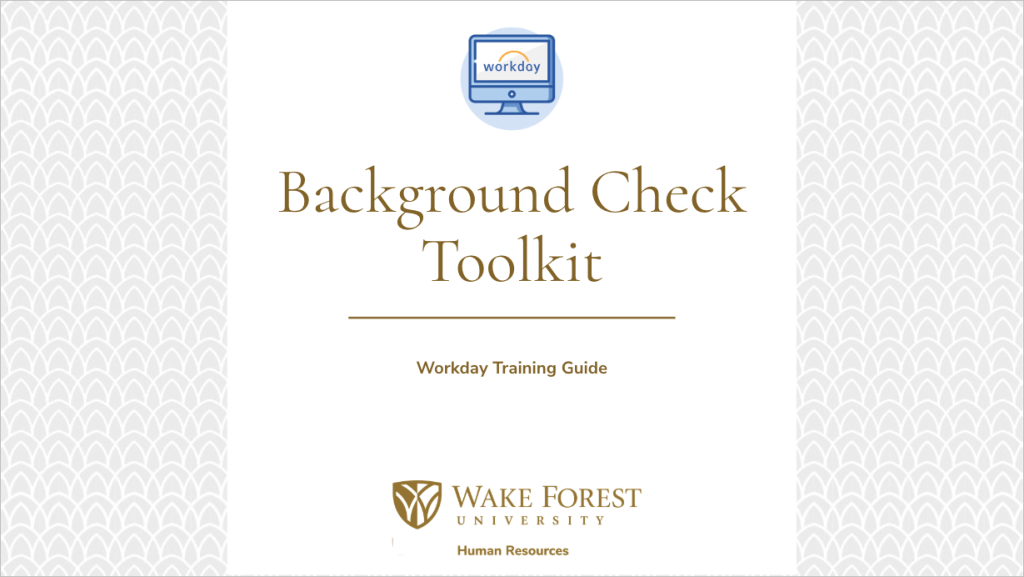
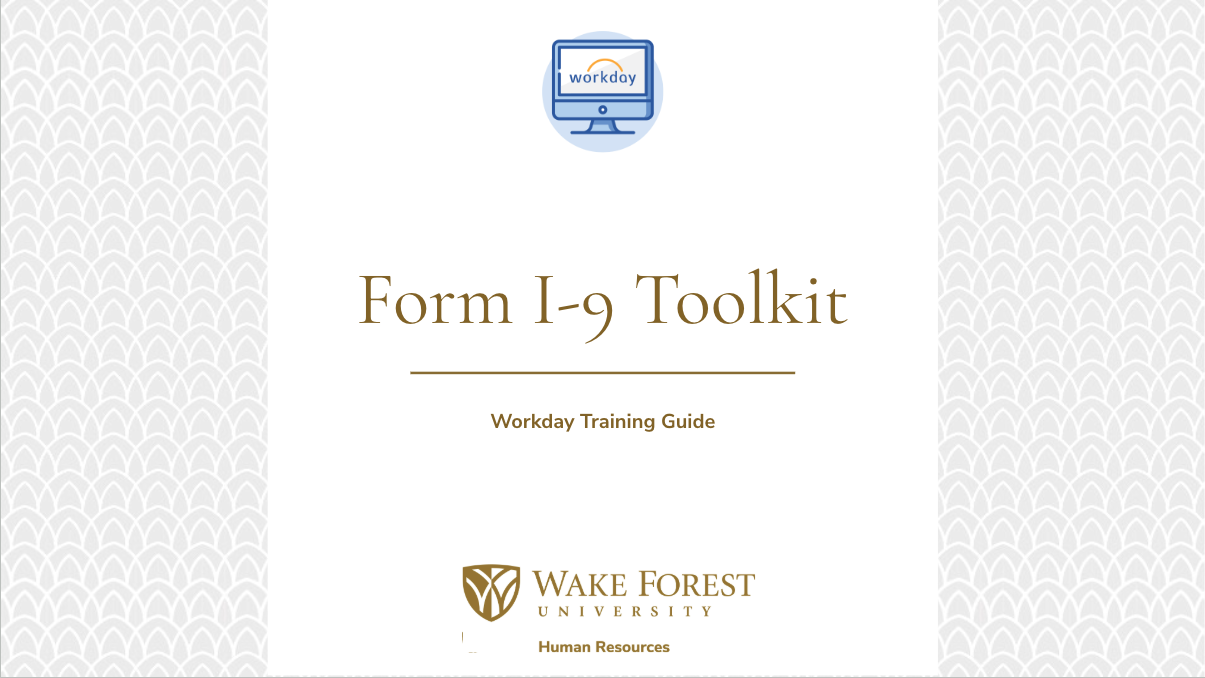
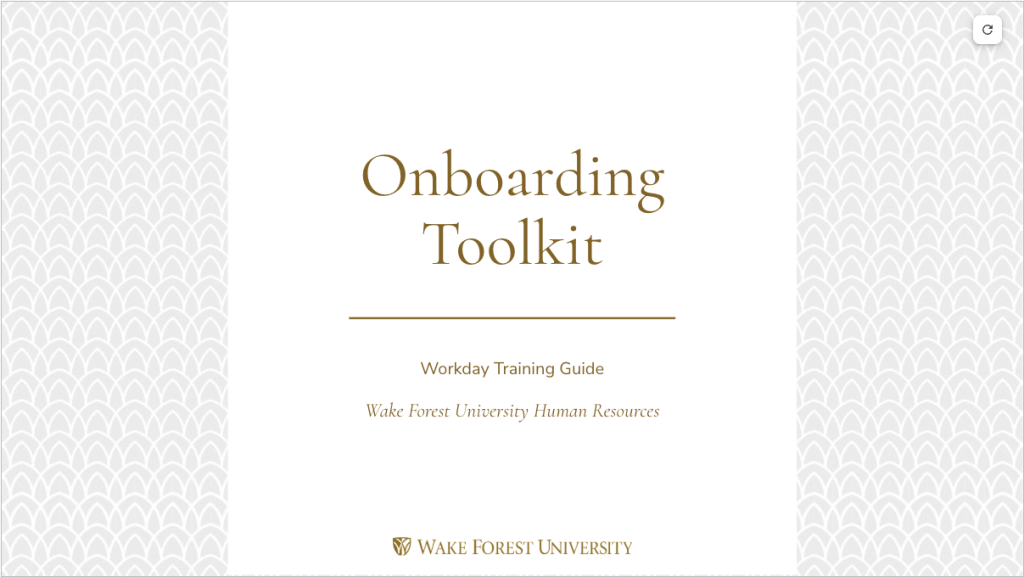
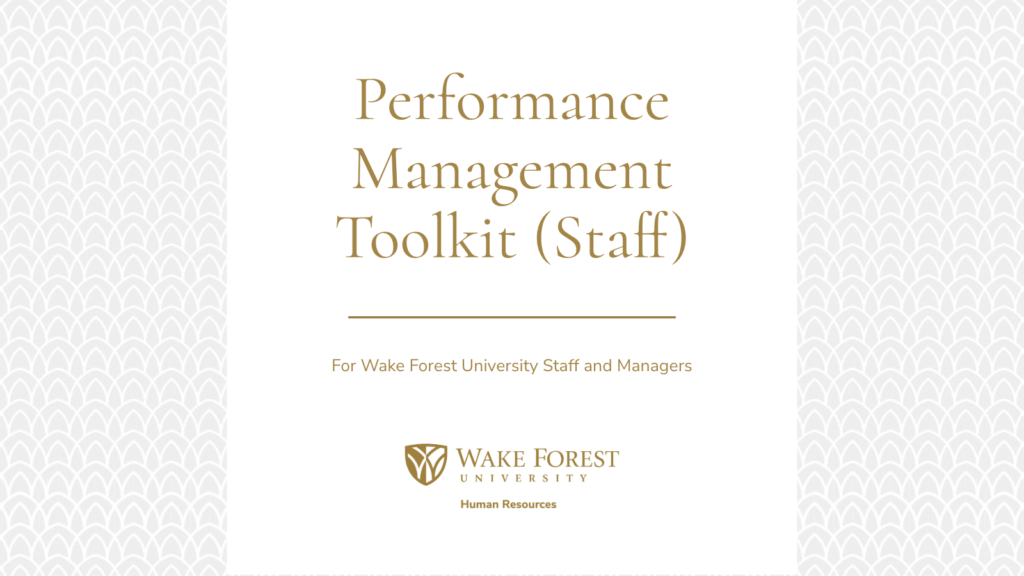
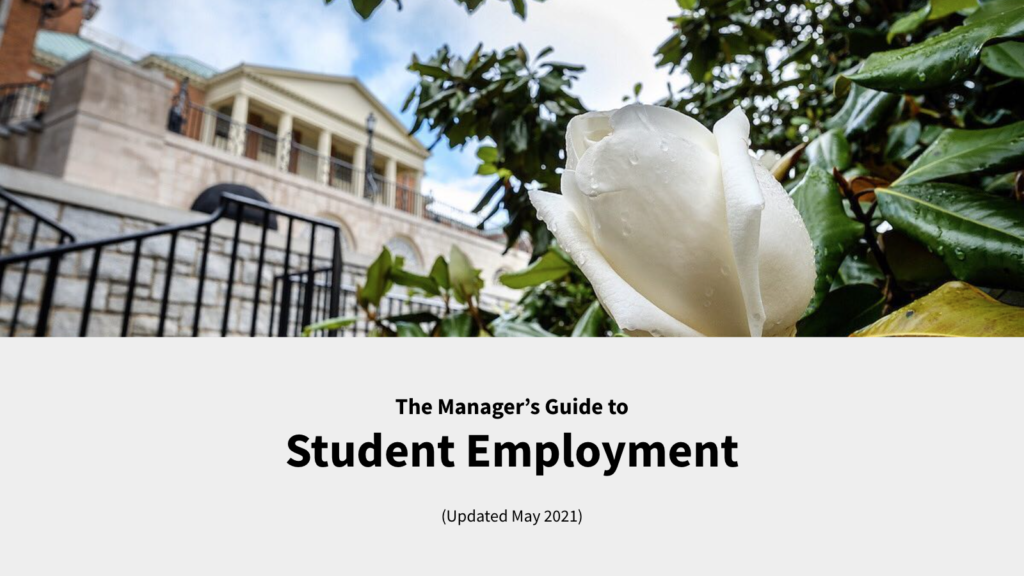
Wake Forest University Human Resources
P.O. Box 7424, Winston-Salem, NC 27109
askHR@wfu.edu | P 336.758.4700 | F 336.758.6127




